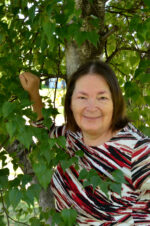When you come to therapy, the focus is on the issue/s that you are bringing, not on your lifestyle. While the lifestyle is important in understanding you and the interactions you have, there is not an assumption that you or your lifestyle needs to be fixed or made more socially acceptable.
I acknowledge that safer BDSM play has fundamental components, starting with freely entered negotiations, education, skills, training, safe words, safe gestures, safe items, and a trigger plan. However, even with these preliminaries in place, physical injuries, emotional triggers, and consent violations can and do occur. And when that happens, you may need professional help to work through the fallout.
KINK can cause harm when utilized carelessly, or thoughtlessly, or when used without consent. However, it can also provide emotional and cognitive awareness and growth (self, and other); deeper understanding; expanded discovery; as well as personal satisfaction.
AS A KINK-AWARE THERAPIST I CAN HELP WITH A VARIETY OF ISSUES INCLUDING:
-
Relationship issues and how they are structured within the context of BDSM as well as knowing the dynamics of power and role within those relationships.
-
Everyday problems which are not assumed to be a result of your kink.
-
Coming Out process and/or figuring out your kink, sexuality, or interests; to find tolerance and acceptance of your particular fetish or kink within yourself, to judge when to disclose fetishes or kink preferences to significant others.
-
Accepting your BDSM identity and how cultural role conflicts relate within the larger society.
-
Vanilla & Kink Conflicts may evoke difficult feelings and it is important to have a therapist who can be accepting of you and your partner’s preferences with validation, respect, and care while helping you process your emotions and reactions.
-
Knowledge of the difference between abuse & trauma and consensual BDSM practices. And figuring out what your options are when dealing with non-consensual experiences.

